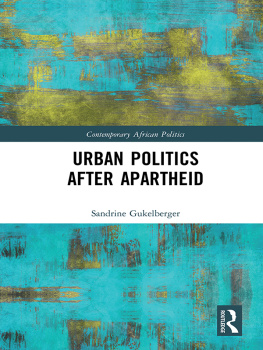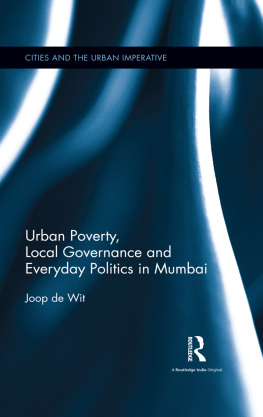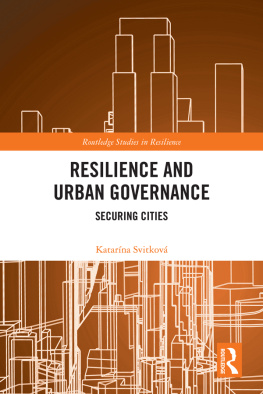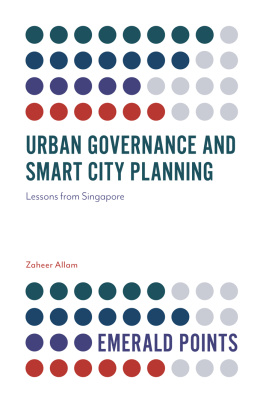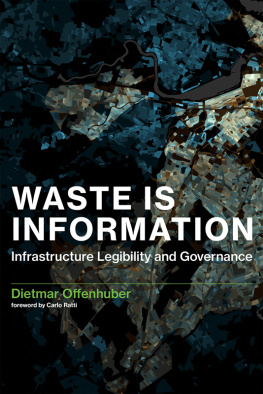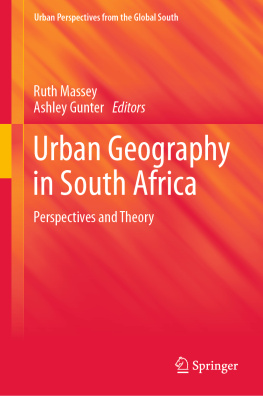Cover
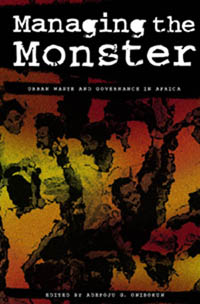
| title | : | Managing the Monster : Urban Waste and Governance in Africa ; Edited By Adepoju G. Onibokun |
| author | : | Onibokun, Adepoju G., |
| publisher | : | International Development Research Centre |
| isbn10 | asin | : | 0889368805 |
| print isbn13 | : | 9780889368804 |
| ebook isbn13 | : | 9781552501016 |
| language | : | English |
| subject | Refuse and refuse disposal--Africa, Urbanization--Environmental aspects--Africa, Metropolitan government--Africa, Dchets--limination--Afrique, Urbanisation--Afrique, Urbanisation--Aspect de l'environnement--Afrique. |
| publication date | : | 1999 |
| lcc | : | TD789.A35M36 1999eb |
| ddc | : | 363.72/8/096 |
| subject | : | Refuse and refuse disposal--Africa, Urbanization--Environmental aspects--Africa, Metropolitan government--Africa, Dchets--limination--Afrique, Urbanisation--Afrique, Urbanisation--Aspect de l'environnement--Afrique. |
Page i
M ANAGINGTHE M ONSTER
Page ii
This page intentionally left blank.
Page iii
M ANAGINGTHE M ONSTER
Urban Waste and Governancein Africa
Edited by
Adepoju G. Onibokun
INTERNATIONAL DEVELOPMENT RESEARCH CENTRE
Ottawa Cairo Dakar Johannesburg Montevideo Nairobi New Delhi Singapore
Page iv
Published by the International Development Research CentrePO Box 8500, Ottawa, ON, Canada K1G 3H9
International Development Research Centre 1999
Canadian Cataloguing in Publication Data
Main entry under title :
Managing the monster : urban waste and governance in Africa
Includes bibliographical references.
ISBN 0-88936-880-5
- Refuse and refuse disposal Africa.
- Urbanization Environmental aspects Africa.
- Environmental policy Africa.
- Onibokun, Adepoju G., 1943- .
- International Development Research Centre (Canada).
TD790.M36 1999 | 363.7286096 | C99-980242-9 |
All rights reserved. No part of this publication may be reproduced, stored in aretrieval system, or transmitted, in any form or by any means, electronic, mechanical, photocopying, or otherwise, without the prior permission of the InternationalDevelopment Research Centre. The views expressed are those of the author(s) anddo not necessarily represent those of the International Development ResearchCentre. Mention of a proprietary name does not constitute endorsement of theproduct and is given only for information. A microfiche edition is available.
IDRC Books endeavours to produce environmentally friendly publications. Allpaper used is recycled as well as recyclable. All inks and coatings are vegetable-based products.
Page v
C ONTENTS
Foreword | vii |
Luc J.A. Mougeot |
Preface | ix |
Chapter 1
Governance and Waste Management in Africa | |
A.G. Onibokun and A.J. Kumuyi |
Chapter 2
Abidjan, Cte dIvoire | |
Koffi Attahi |
Chapter 3
Ibadan, Nigeria | |
A.G. Onibokun and A.J. Kumuyi |
Chapter 4
Dar es Salaam, Tanzania | |
J.M. Lusugga Kironde |
Chapter 5
Johannesburg, South Africa | |
Mark Swilling and David Hutt |
Page vi
Chapter 6
Synthesis and Recommendations | |
A.G. Onibokun |
Appendix 1
Contributing Authors | |
Appendix 2
Acronyms and Abbreviations | |
Bibliography | |
Page vii
F OREWORD
This book presents the results of the African component of a globalproject on sustainable cities. In 1993, it successfully competed forsupport from a limited, special initiatives fund of Canadas International Development Research Centre (IDRC). At that time, program specialists argued that the project offered great potential foran extensive and well-coordinated research network to pool scarcefunding and conduct high-quality research, by senior specialists inrenowned institutions, which would focus on priority urbansocial, environmental, and economic issues for a more sustainablemanagement of Southern cities. The reader will no doubt findthat this promise has been fulfilled by the research presented inthis book. More importantly, we hope that you will concur thatManaging the Monster is nothing less than a benchmark contribution to our knowledge on governance and waste management inmajor urban centres of Africa.
The authors are senior experts from a wide range of entitiesinvolved with waste management. They have served as advisers ordirectors of United Nations agency offices, research-oriented nongovernmental organizations, metropolitan council departments,and university schools and institutes in Africa. Both the proposaland project benefited from discussion between the team and alarger group of experts from around the world, assembled underthe Global Urban Research Initiative coordinated by Richard Strenof the University of Toronto.
Page viii
Ably coordinated by Adepoju G. Onibokun, chief executiveof the Centre for African Settlement Studies and Development inNigeria, this team assigned itself the daunting task of tackling comprehensively a notoriously underreported and mismanaged urbanservice: waste management. The published literature on the subject was very limited and the researchers had to rely heavily on thegray literature, documents either unpublished or with limited circulation. Adding to their burden, the team undertook to investigate waste management through a governance perspective. At thetime, this was a very new approach and, today, remains highlydemanding and innovative, for the type of information it requires,the relationships it needs to address, and the recommendations itis expected to deliver.
Managing the Monster highlights new directions on policyand technology that are highly relevant to IDRCs current focus onurban development research in the South. In a number of urbansectors (water, housing, utilities, open-space management, etc.),better governance is central to improving the effectiveness of service provision. As shown in this book, better governance impliesredressing inequitable access to resources and services, confusionand conflict over responsibilities, top-down decision-making, andlack of accountability and transparency. Resource utilization bycities cannot be made more sustainable without increasing wasteand by-product recovery; this is needed to reduce urban demandson rural areas and to make cities themselves more viable and liveable. A more equitable, viable, and sustainable use of urbanresources can only be enhanced by better governance.
Next page

